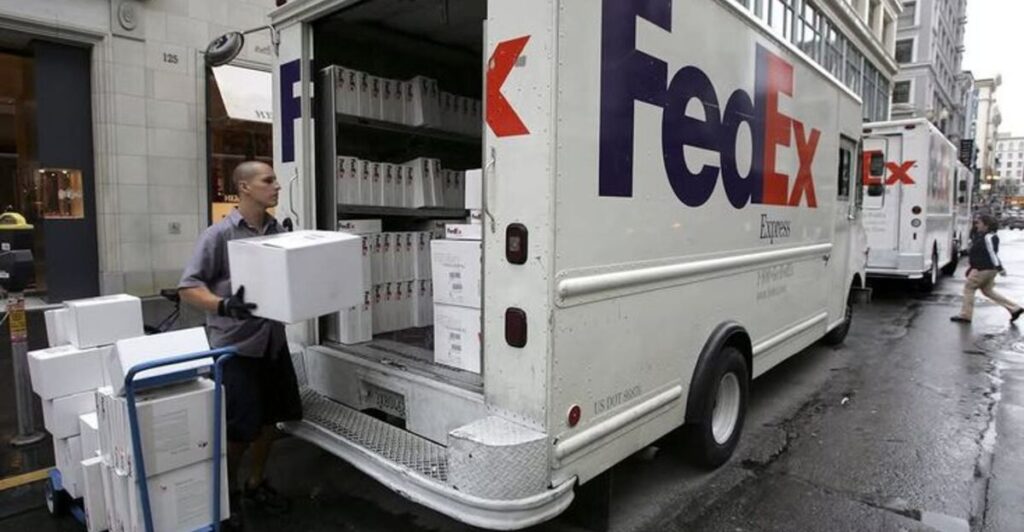
May 2025 is seeing a significant wave of layoffs across many major industries, from technology to retail. Global economic uncertainty, rising operational costs, and rapid advances in automation are forcing companies to make tough staffing decisions. Although these layoffs are devastating for affected employees, they also carry significant consequences for everyday shoppers.
Changes in staff can affect everything from product availability and prices to customer service experiences. Let’s take a look at which companies are making cuts, why these decisions are being made, and what these changes mean for consumers.
Tech Industry Layoffs

Major tech companies like Google, Microsoft, and Meta have announced significant job cuts in 2025. Google is restructuring to focus on artificial intelligence, leading to the elimination of non-essential roles. Microsoft is reducing middle management and merging teams, while Meta continues its “year of efficiency,” cutting staff to streamline operations.
But what does this mean for shoppers? These layoffs could result in slower updates of new features, reduced customer support, and possible changes in how digital products and services are provided. The tech industry’s shift towards automation could also result in more self-service options and fewer human interactions for users.
Retail Shake-Up

The retail industry will also face significant changes, as Sainsbury is cutting 3,000 jobs and Tesco is laying off 400 employees. Other chains like WHSmith, Morrisons, and River Island have also announced job cuts. These layoffs are due to increased labor costs, higher national insurance contributions, and reduced government support.
For shoppers, these layoffs could result in fewer staff on the shop floor, longer checkout waiting times, and an increased reliance on self-service technology. It could also cause store closures or reduced opening hours. In the end, the shopping experience could become less personal, with a stronger focus on efficiency rather than customer interaction.
Amazon

Amazon has continued workforce reductions into 2025, targeting roles in communications and other departments.
These layoffs align with the company’s efforts to balance rapid growth with profitability and increased automation, affecting employee numbers across various divisions.
Logistics and Startups

The logistics and startup sectors are also facing layoffs. Forto, a logistics startup, has cut around 200 jobs, mainly in sales and support roles. Wicresoft, a Microsoft outsourcing partner, is closing its operations in China, which will affect approximately 2,000 employees after losing a major contract.
These changes could disrupt supply chain efficiency, causing potential delays in product deliveries and reduced customer support. As startups and logistics companies streamline their operations, consumers can expect slower shipping, less responsive service, and fewer innovative solutions coming to market in the near future.
FedEx

FedEx is cutting over 200 jobs at its Lebanon, Tennessee, facility and closing other centers as part of its Network 2.0 restructuring.
These moves are intended to reduce costs and streamline logistics as demand shifts. The layoffs reflect broader challenges in the shipping industry, including contract losses and operational consolidation.
Mattel

Mattel is said to be reducing staff in May 2025 as consumer preferences shift and supply chain challenges affect the toy industry. “These layoffs are part of an effort to streamline resources and decision-making processes, and streamline the brands we put in the marketplace,” the company said in a statement.
The move is part of “a strategic realignment of the business to better align with our core brands and customer preferences as we look for ways to compete amid the realities of new marketplace demands.” It’s just part of the broader pressures facing the retail sector.
Software and Cloud Companies

This year, software and cloud companies are also making massive cuts. Five9, which is a cloud contact center firm, is letting go of 123 employees (about 4% of its workforce) to focus on artificial intelligence. Automattic, the parent company of WordPress.com, is also reducing its workforce by 16%, affecting over 270 staff members. Block, the financial technology company led by Jack Dorsey, is letting go of 931 employees as part of a broader reorganization to enhance performance and streamline operations.
For shoppers, these layoffs could lead to fewer updates on digital platforms, slower response times for customer service, and potential disruptions in online services. As companies focus more on profitability and automation, the way consumers interact with digital products might change.
Walmart

Walmart is laying off over 2,000 workers across five U.S. facilities in Fort Worth, Texas; Bethlehem, Pennsylvania; Pedricktown, New Jersey; Davenport, Florida; and Chino, California. These layoffs are part of a strategic shift to align operations with the growing demand for online shopping and to enhance efficiency in order fulfillment processes.
This could impact product selection, store organization, and overall service levels for shoppers. Large-scale layoffs at big retailers like Walmart could also have broader economic effects, leading to lower local employment and reduced consumer spending. If this trend continues, shoppers could face higher prices, fewer promotions, and a more efficient but less personalized shopping experience in physical and online stores.
UPS

UPS is restructuring its workforce in 2025 as the logistics industry grapples with streamlining operations and cutting costs.
Although the company did not provide specific May numbers, UPS is responding to automation trends, fluctuating e-commerce demand, and competitive pressures by streamlining staffing as demand changes.
Wells Fargo

Wells Fargo is implementing workforce reductions in 2025 as part of ongoing efforts to optimize costs and improve efficiency.
While specific May figures are not detailed, the bank continues to adjust staffing levels in response to economic pressures and shifts toward digital banking services.
AT&T

AT&T is cutting 88 employees at its Sunrise, Florida, customer service center in May 2025. This reflects a broader cost-cutting and operational efficiency programme to which the company has responded to competitive pressures and new dynamics in the telecoms market.
Starbucks

Starbucks also announced that it was cutting about 1,100 corporate employees globally in May 2025. The cuts are intended to help streamline the business and reduce costs as the company invests in digital ordering and automation, to adapt to changing consumer habits and economic challenges.
Frito-Lay

Frito-Lay, a division of PepsiCo, will implement layoffs in May 2025 to improve operational efficiency and adapt to changing consumer preferences in the snack food market. These workforce reductions are part of broader cost management strategies within the food and beverage sector.
JPMorgan Chase

JPMorgan Chase is conducting phased layoffs throughout 2025, with initial reductions affecting fewer than 1000 employees.
The bank is targeting efficiencies and is responding to economic uncertainty, technological change, and the need for a smaller workforce.
Ritz-Carlton Hotel

The Ritz-Carlton Key Biscayne is temporarily laying off roughly 425 employees from May 1-14, 2025, as it undergoes a $100 million renovation expected to last six months. This will reduce hotel services and impact local hospitality employment during the renovation period.
Automation and the In-Store Experience

With fewer employees, retailers are turning to automation to keep operations running smoothly. Next, a fashion and homeware retailer, is introducing self-service checkouts to improve operational efficiency and offset labor costs. Other retailers, like Primark, Sainsbury’s, and Tesco, are also investing in technology to minimize the impact of layoffs.
This means that shoppers will have more self-service options and fewer interactions with staff. While automation might speed up certain processes, it could also lead to frustration for people who prefer human assistance. These changes could result in a less personal shopping experience.
Brand Reputation and Consumer Trust

Mass layoffs can also damage a company’s reputation, especially if they are handled poorly. Research shows that brand strength can drop by an average of 18% after layoffs, with recovery taking about seven weeks. A study by Allison+Partners revealed that nearly one-third of Americans reported that news coverage of a company’s layoffs directly impacted their perception of the brand.
Companies must be transparent, and support affected employees to preserve customer trust. For shoppers, these situations can influence where they spend their money and which brands they choose to support.
Shopper Sentiment and Loyalty

As the news of these layoffs spreads, shopper sentiment can shift quickly. In today’s world, consumers are more conscious of how companies treat their employees, and this often influences where they choose to spend their money.
Poorly handled layoffs can damage a brand’s reputation and push loyal customers toward competitors with more ethical practices. Conversely, businesses that manage job cuts honestly and compassionately could maintain or even strengthen customer trust.
What This Means for Shoppers

The wave of layoffs in May 2025 marks a time of change for companies and consumers. As companies adjust to smaller teams and increase automation, shoppers may notice shifts in prices, product choices, and the overall shopping experience.
While some people might appreciate the efficiency of these changes, others might miss the personal touch that comes with a well-staffed store. In the end, shoppers hold significant power as their choices and loyalty play massive roles in how businesses respond to future challenges.
Discover more DIY hacks and style inspo- Follow us to keep the glow-up coming to your feed!

Love content like this? Tap Follow at the top of the page to stay in the loop with the latest beauty trends, DIY tips, and style inspo. Don’t forget to share your thoughts in the comments — we love hearing from you!